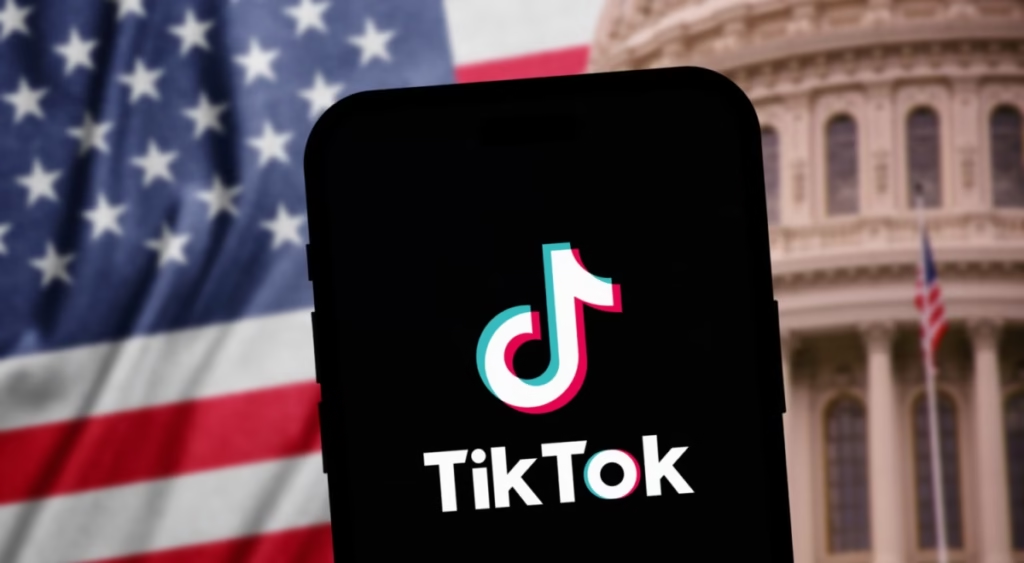Let’s be clear: TikTok’s looming ban in the U.S. is less about safety and more about control.
Before we discuss TikTok, let’s just say that America has a history of pushing back on progress or technology that threatens its political or financial elite.
From the days of the printing press to the advent of social media, there’s a recurring theme: when the people gain a tool that promotes transparency, creativity, or grassroots power—and when the government can’t directly profit from it—those tools often become targets for regulation, restriction, or outright removal.
Today, TikTok is the new battleground.
The government claims that banning TikTok protects Americans from potential surveillance by China. Yet, government officials and agencies actively use TikTok to share campaign messages and public announcements. The contradiction is glaring. If TikTok is so dangerous, why are these same officials utilizing it as a tool for outreach? The hypocrisy speaks volumes.
TikTok: The Accountability Tool
TikTok is more than just an app. It’s a cultural movement. It provides unfiltered, grassroots reporting, often faster and more accurate than mainstream media. In moments of crisis—be it natural disasters, political protests, or international events—TikTok has shown the power of immediate, unadulterated news.
It bypasses the red tape of traditional outlets, offering transparency that often holds corporations, governments, and individuals accountable.
Moreover, TikTok has become a lifeline for creators. Whether it’s a single mother sharing budgeting tips, a felon rebuilding their life by teaching others new skills, or disabled individuals using the app as their primary source of income, TikTok has democratized opportunity.
It’s ironic that the government—which oversees a system that often limits employment opportunities for marginalized groups—is threatening to destroy one of the few platforms that helps these people thrive.
Follow the Money
It’s no secret that Congress thrives on power and financial gain. Members of Congress are barred from owning shares in TikTok, a Chinese-based platform, which makes it a much easier target for elimination.
If TikTok were an American company—or one that could be heavily regulated and taxed—would we even be having this conversation? Likely not. TikTok’s global, independent structure puts it beyond the direct reach of U.S. lawmakers, and that infuriates them.
The U.S. has a track record of destroying things they cannot control. From fighting the open internet in the early 2000s to stifling platforms like Napster, the pattern is clear: if the government or corporations can’t profit, they’ll find a way to dismantle.
The same is happening with TikTok.
The Rumored Saviors: Trump or Musk?
As TikTok faces this existential threat, whispers abound about potential “saviors.” Some speculate that Elon Musk, who is currently facing waning support from both sides of the political aisle, might step in as the hero to “save TikTok.”
It would serve as a strategic move to regain public favor, especially with younger audiences who make up a large chunk of TikTok users.
However, Musk’s handling of Twitter post-acquisition has left many skeptical. Could TikTok suffer the same fate as Twitter—a platform radically altered and barely recognizable?
Others point to Donald Trump, whose administration previously pushed for TikTok’s ban but also floated the idea of forcing its sale to an American company.
Trump has always positioned himself as a dealmaker, and re-entering this debate could give him a chance to rebrand himself as a “protector” of American livelihoods.
However, whether Musk, Trump, or someone else takes over, the TikTok we know and love would likely change forever.
The Bigger Picture
The push to ban TikTok isn’t just about geopolitics. It’s about stripping Americans of their ability to connect, create, and prosper independently.
TikTok empowers ordinary people to earn money instantaneously, often with little more than a smartphone and an idea. It’s a level of freedom and accessibility that the government cannot regulate—and that terrifies them.
And while TikTok teaches Americans Mandarin and makes its platform increasingly user-friendly, the irony is that the U.S. government, which should champion free enterprise, is working to dismantle one of the most egalitarian tools of the digital age.
A History of Snatching Joy
TikTok’s potential ban mirrors other moments in American history where innovation was stifled by greed or fear:
- The Printing Press: When first introduced, governments feared its ability to spread information that could challenge authority.
- Napster and File Sharing: The music industry, backed by lawmakers, crushed peer-to-peer sharing platforms instead of finding ways to adapt.
- Musical.ly: Before it evolved into TikTok, Musical.ly faced skepticism and opposition. Yet, it ultimately thrived and became a beloved platform—until now.
The pattern is clear: when something shifts power to the people, the elite work to reclaim control.
What’s Next for TikTok Users?
For now, TikTok users should prepare for the worst but hope for the best. Start by downloading and repurposing your content. Whether you shift to Instagram, YouTube Shorts, or another platform, don’t lose the creativity and community you’ve built.
And remember, if TikTok does survive—whether through Musk, Trump, or sheer public demand—it may look different. But as history shows, when one great thing ends, something new often takes its place.
Americans are resilient. We embraced Musical.ly, then TikTok, and we’ll find or create the next platform if necessary.
Let this serve as a reminder: progress cannot be stopped, no matter how much those in power try to control it.
In the meantime, keep dancing, creating, educating, and thriving.
And don’t let anyone, including Congress, convince you that this fight is about “safety.” At its core, it’s about control—and we’ve seen this story before.




Pingback: America, Land of the Free and Home of the Brave? How? - The Culture Reset